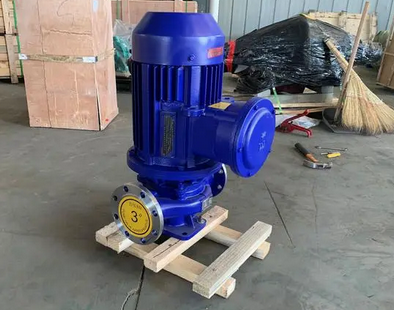Causes of overload of pipeline centrifugal pump
The reasons for overloading of pipeline centrifugal pumps usually involve multiple aspects, which may act alone or in combination to cause the pump to operate beyond its design conditions. Here are some of the main reasons:
The inlet valve is not closed tightly or the inlet pipeline is blocked:
If the inlet valve is not completely closed or there is a leak, the pump's inlet pressure will be reduced, which will increase the pump's flow rate and exceed its rated value.
The blockage of the inlet pipeline will also reduce the inlet pressure, increase the pump's flow rate, and cause overload.
Excessive resistance in the outlet pipeline:
When there is too much resistance in the outlet pipeline of the pump, such as too thin pipes, too many elbows, or incomplete valve opening, the pump's outlet pressure will increase, thereby increasing the pump's head and exceeding its design range.
The pump speed is too high:
The flow, head, and power parameters of the centrifugal pump are closely related to its speed. If the pump speed exceeds the rated value, these parameters will also exceed the rated range, causing overload.
Impeller damage or blockage:
The impeller is the core component of the centrifugal pump, and its performance directly affects the working state of the pump. If the impeller is damaged (such as wear, deformation, etc.) or blocked (such as suction of sticky debris, etc.), the pump flow, head and power parameters will be abnormal, which may cause overload.
The pump shaft or motor shaft is not aligned:
If the pump shaft and the motor shaft are not aligned, the motor load will increase, and the pump may vibrate and make noise during operation, which is easy to cause overload under long-term operation.
Motor failure:
The motor is a key component that drives the centrifugal pump. Motor failure (such as winding short circuit, rotor imbalance, unstable power supply voltage, etc.) will increase the motor load, which will cause the pump to overload.
Improper design or selection:
When selecting a centrifugal pump, if the appropriate model and specification are not selected according to actual needs, or the working conditions of the pump (such as medium properties, temperature, pressure, etc.) are not fully considered during the design process, it may also cause the pump to overload during operation.
Other factors:
Such as changes in medium viscosity (beyond the design range), unreasonable pipeline layout (such as too many elbows, reducers, etc.), damage to the pump body seal causing leakage, etc., may also have an adverse effect on the operation of the centrifugal pump and cause overload.





